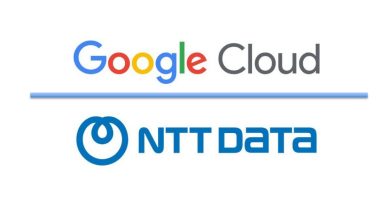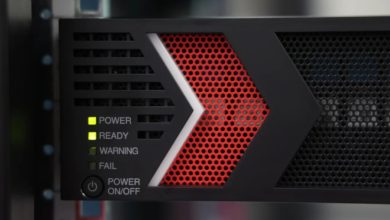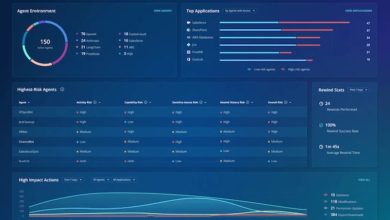UiPath: 86% of Southeast Asian Organisations Will Use AI Agents Within Next 12 Months
Study Reflects Growing Adoption of AI Agents and Shift from Experimentation to Large-Scale Implementation

A new IDC InfoBrief, “Agentic Automation: Unlocking Seamless Orchestration for the Modern Enterprise,” commissioned by UiPath, a global leader in agentic automation, has revealed that around 42% of organisations in Southeast Asia (SEA) have already implemented agentic AI, and close to 44% are planning to use the technology within the next 12 months.
The findings of this UiPath study reflect the growing adoption of AI agents and a broader trend of organisations shifting from AI experimentation to large-scale implementation, positioning 2025 as a pivotal year for AI integration in SEA.
Southeast Asia’s AI Growth Impetus
The shift to large-scale AI implementation is fuelled by businesses’ desire to improve employee productivity, accelerate new product development, and enhance product and service quality. SEA organisations also realise the tangible benefits that agentic AI offers, as 75% report that it supports better decision-making, while 72% say it helps increase productivity.
SEA’s growing digital transformation and the need for more efficient, autonomous systems to support business operations and customer engagement are accelerating the adoption of agentic AI. In particular, financial services, manufacturing, as well as retail and wholesale, are among the top industries with agentic AI adoption. SEA organisations also rank customer support automation (58%), risk management and fraud detection (58%), and productivity enhancement (56%) as some of the most promising use cases of agentic AI in 2025.
Navigating the Complexities of AI Implementation
While SEA countries have adopted varied approaches to AI initiatives, the region still faces several challenges in their widespread implementation. Notably, AI governance and risk management (22%), followed by a shortage of skilled professionals (18%) and high infrastructure costs (18%), are the top challenges hindering the growth of AI technologies in SEA.
Specifically with agentic AI, SEA organisations are concerned that data privacy breaches (51%), security vulnerabilities due to their autonomous actions (48%), and unintended consequences arising from complex interactions (47%) would pose business risks. On the implementation front, data security concerns (57%), high implementation cost (48%), and integration with existing systems (42%) are key challenges.
Agentic Automation Paves the Way for Enterprise AI Adoption
Despite challenges, the pace of agentic AI adoption continues to accelerate in SEA. About four in five organisations (79%) are actively developing potential use cases for agentic AI, even if they have not yet made substantial investments.
At the forefront of this shift is agentic automation, a key enabler for AI-powered businesses. Agentic automation allows organisations to integrate the power of agentic AI and RPA into their enterprise workflows and deploy autonomous AI agents to handle complex tasks, unlocking new levels of efficiency, scalability, and innovation. To maximise impact, businesses are leveraging agentic orchestration to bridge isolated AI tasks, dynamically managing workflows and scaling agentic automation across the organisation.
“Agentic automation is rapidly redefining business operations across Southeast Asia. While enterprises in this region are embracing the full potential of AI agents to streamline workflows and autonomously execute complex business processes, trust and security remain barriers to widespread implementation. Our agentic automation platform directly addresses these challenges, breaking down barriers to enterprise AI adoption by enhancing security and compliance, improving accuracy and reliability for agentic outcomes,” said DebDeep Sengupta, Area Vice President, South Asia, at UiPath.
“Becoming an AI-fuelled business is no longer an option in today’s unpredictable climate. For many organisations, it’s fast becoming a strategic necessity. Across the region, organisations are embracing agentic AI and agentic automation at scale. It is clear that many leaders see its potential to drive unprecedented levels of productivity, innovation, and growth, which will be key in building organisational resilience against future disruptions,” said Deepika Giri, Associate Vice President, AI Research, at IDC Asia/Pacific.
The Path Forward with UiPath
As SEA organisations embrace agentic AI solutions, business leaders must prioritise building transparent human-agent ecosystems and implementing automation solutions with robust governance frameworks, transparent decision-making capabilities, and strict compliance with data security and privacy standards. At the same time, technology leaders will need to evaluate and identify the right agentic tools, prioritising platforms that not only scale with their organisation’s needs but also integrate seamlessly with existing systems and applications.
To ensure responsible and effective deployment of AI agents, SEA countries must strengthen governance frameworks with clear policies, standards, and regulatory guidelines for ethical AI use. Addressing data security, ethical concerns, and compliance challenges also requires transparent risk management, robust security measures, and targeted upskilling programs to address the talent shortage as well as foster public-private partnerships to lower infrastructure costs.
To download the IDC InfoBrief, titled “Agentic Automation: Unlocking Seamless Orchestration for the Modern Enterprise,” please visit: http://uipath.com/resources/automation-whitepapers/unlock-seamless-orchestration-with-agentic-automation.




